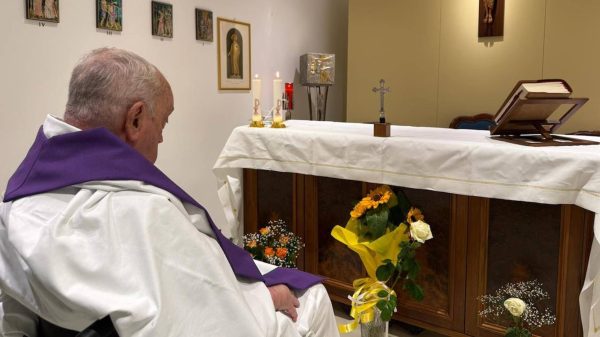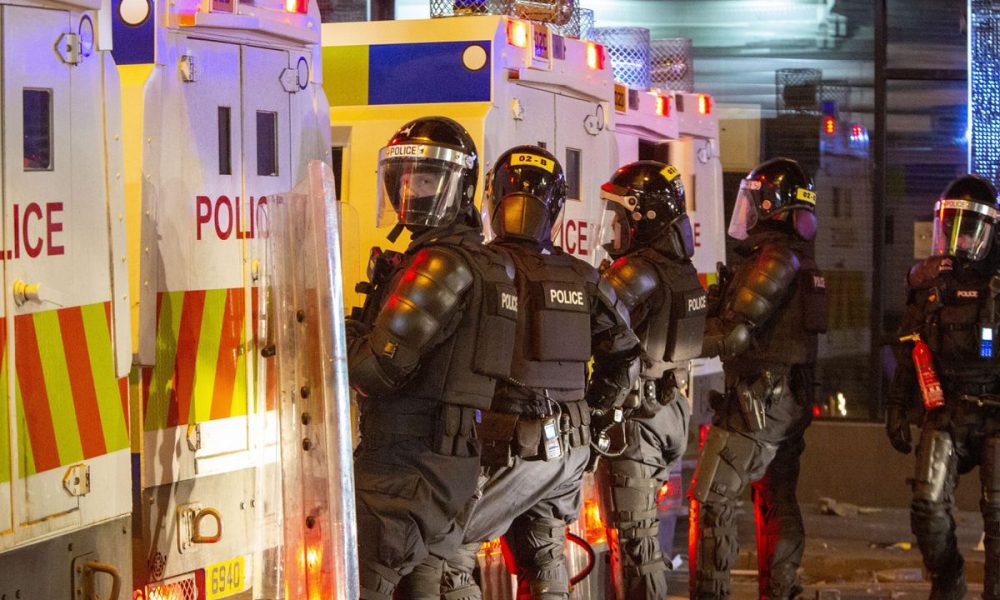Rioting on the streets of Belfast and Derry City in the past week by British loyalists which saw 27 policemen injured followed by subsequent arrests have raised concerns that Northern Ireland might be slipping back to a life of hostilities that originally took over 25 years of sectarian warfare to eradicate. As Ken Murray reports from Dublin, a number of events coming down the line could make an already fragile atmosphere even worse.
Recent rioting on the streets of Belfast and Derry City has threatened a delicate and successful peace process that has been carefully evolving for the past 23 years.
When the so-called ‘Good Friday’ Agreement was signed on April 10th 1998 between London and Dublin with Washington looking on, everyone on the island of Ireland prayed that ‘The Troubles’, which claimed over 3,500 lives, were finished.
However, in a bitterly divided society where protestant unionists wish to remain under British rule and catholic nationalists want to unify the island of Ireland since it was divided by London in 1921, tensions have been coming to the surface which threaten to turn back the clock.
A decision last week by the Police Service of Northern Ireland not to prosecute senior members of Sinn Féin for breaching Covid-19 restrictions while attending the funeral of one of their chief strategists Bobby Storey in June 2020, caused uproar in the unionist community with many prominent politicians suggesting special treatment was being applied for appeasement purposes!
As a result, angry protestant youths took to the streets of Belfast and Derry and rioted their anger against the police.
In her Easter message, Northern Ireland’s First Minister and Leader of the pro-British Democratic Unionist Party Arlene Foster said: “The people are hugely frustrated.
“I appeal to our young community not to get drawn in to disorder which will lead to them having criminal convictions and blighting their own lives,” she said.
Her comments come as anger is growing elsewhere within the unionist community over the Northern Ireland protocol, a part of the British exit from the EU which has seen the establishment of checks at ports in Belfast and Larne on trade goods entering NI from GB.
As unionists see it, the notional ‘border’ or imaginary line down the middle of the Irish Sea psychologically isolates Northern Ireland from GB and is another gentle step towards a united Ireland.
The matter hasn’t been helped by the fact that British Prime Minister Boris Johnson rowed back on a prior commitment not to impose such a ‘border’ between GB and NI.
Johnson promised delegates at the annual DUP Conference in November 2018: “If we wanted to do free trade deals, if we wanted to cut tariffs or vary our regulation, then we would have to leave Northern Ireland behind as an economic semi-colony of the EU and we would be damaging the fabric of the union.”
Johnson did the proverbial u-turn on the DUP which, ironically, kept the Conservative Party in Government during Teresa May’s time in 10 Downing st, and his cunning betrayal has enraged British unionists and loyalists in Northern Ireland who feel that incrementally, London is off-loading the costly province in to the hands of Dublin, a scenario they vehemently oppose.
To complicate matters moreso, the Loyalist Communities Council which represents protestant terrorist groups such as the UDA, UVF and Red Hand Commando, said its members have now withdrawn support for the 1998 Peace Agreement in protest at the implementation of the Northern Ireland Protocol by London.
The recent upsurge in rioting may be linked to this move with newspaper reports suggesting that the LCC want to see the collapse of the regional Northern Ireland parliament to ensure that direct rule from London is re-introduced so that unionist issues and concerns in the province receive greater attention while simultaneously reducing Sinn Féin influence.
In the meantime, as Northern Ireland finds itself at yet another political crossroads, a number of milestone events are coming down the line that are likely to enflame tensions moreso.
When the Northern Ireland Assembly elections take place in May 2022, it is 99.99 per cent likely that Sinn Féin will win more seats than the DUP putting Irish nationalists in the dominant position for the first time since 1921.
Added to that, the results of the Northern Ireland census will be published in Summer 2022 with catholics tipped to surpass the number of British protestants for the first time in over 300 years, a move that will speed up the call for an all-Ireland referendum and all that before the outcome of the Scottish Assembly elections increases demands for independence there!
As Sinn Féin MP John Finucane put it recently: “A united Ireland is not a case of if, but when.”
On paper, all the dynamics and trends are working against British unionists in Northern Ireland, suggesting that the recent rioting may be a rehearsal for what is to come.
Share this article:





















